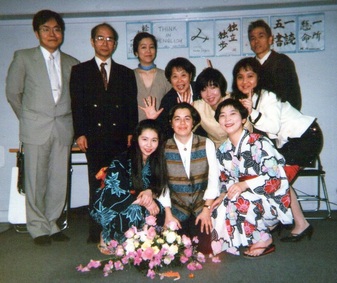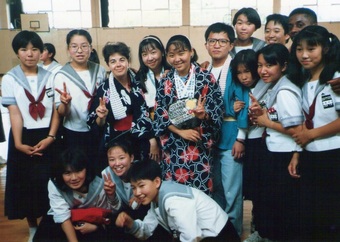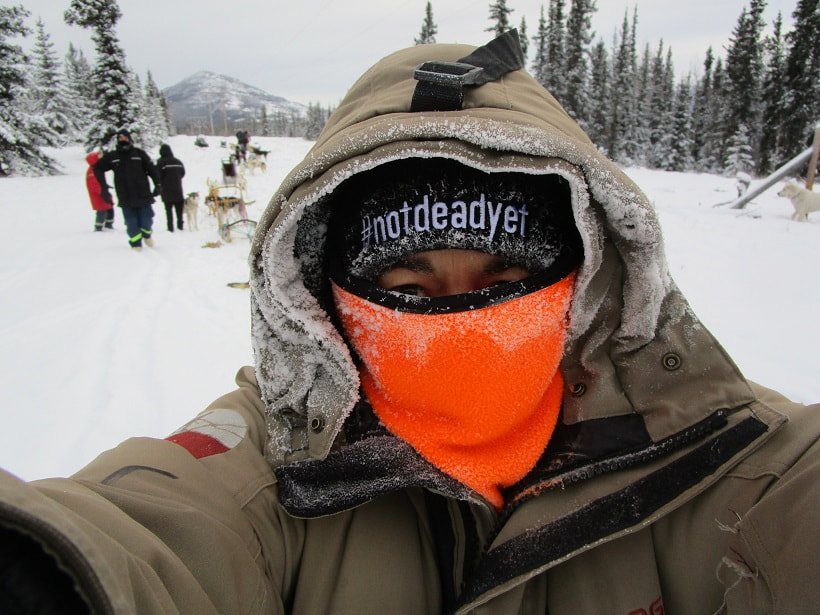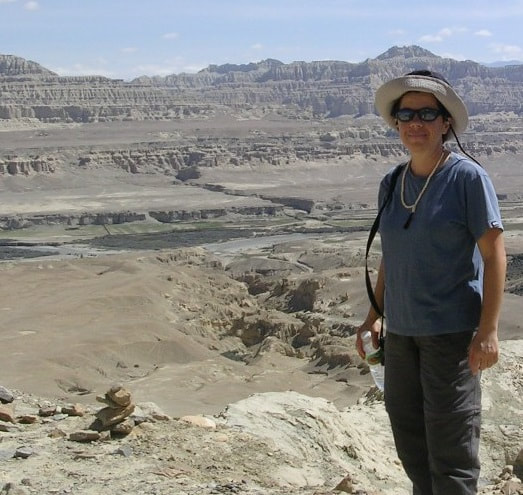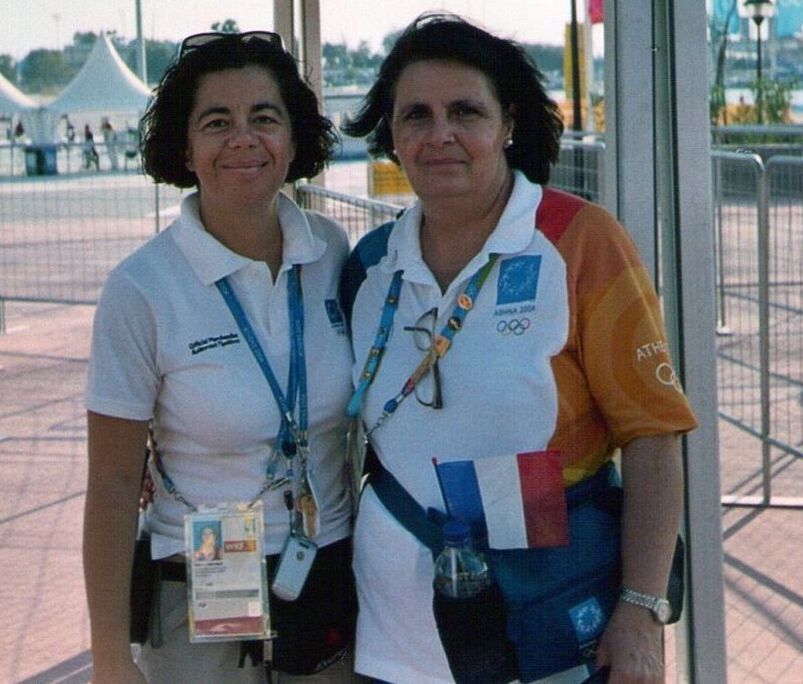|
“Howsitgointoday?” “Going? To die?” “No - today.” “Toodai?” “How. Are. You. Today?” “Aah…” recognition rippled across my students’ faces, “you mean today?” I stood slightly bewildered in front of my first English language class in Tokyo, carefully picking my way through my sentences as I struggled to make myself understood in my native tongue. Hang on, I was speaking English! Whad’yamean they don’t understand me? Fair dinkum, it wasn’t like I was speaking Greek. Or Japanese. I dunno, maybeineedtoslowdown… or… pause… between… words…is… that… better? Why it’s difficult to understand Australians
Once my Japanese students got over my accent, we focused on the finer grammatical details such as:
I taught adults, mainly businessmen, although I had three wonderful housewives and a group about to head off to English-speaking lands on an international exchange program. How to hug an Australian “So Hari, have you taught your students how to hug yet?” “Err… I was going to wait for a couple of lessons.” “Well, I think you can demonstrate this now,” my supervisor insisted. Tomoko had spent a year on exchange in the United States and was a hugging expert. These students were undertaking cultural studies as part of their English language program. They would work as teacher aides in England, America, Canada and Australia; learning to hug their foster families was therefore a crucial tool. “Tomoko, they’re not ready yet. I think we should start with shaking hands.” As a Greek, I was used to kissing family and friends on the cheek, but had not fully embraced hugging at that stage in my life. I was also in a culture where people bowed to each other instead of shaking hands. Hugging was going to be an interesting encounter on both sides of the cultural fence. “Hari and I will give you an example of how to hug,” said Tomoko, taking control of my class. “Then you can all line up and give Hari a hug.” My students stood awkwardly in the queue, visibly nervous and alarmed by the impending physical contact with a foreigner. “I think your students should practice this in class every week,” Tomoko observed. The differences between Australian and Japanese students During my first year in Japan, I had a job which offered free Japanese language lessons for two hours every day. I was a willing guinea pig in a program which provided a teacher training environment for the Japanese, who were unaccustomed to foreign students:
How teaching English improved my English In Japan I discovered a new passion in my life and revelled in the classroom environment. While I enjoyed the teaching experience, I realised that I also learned to:
The proliferation of online and text messaging means I keep a dictionary close by and am constantly checking the spelling of words. I worry me speakin is getting sloppy agin. I’m gonna hav 2 watch meself. Wad’yareckon?
9 Comments
Robyn nolan
31/5/2011 01:13:47 am
Loved it Hari! Having had Mingma & lived in USA we had to work on our pronunciation & slow down. This is the best one so far!!
Reply
31/5/2011 01:22:00 am
Coneechywah, Haz. Gonna give ya a hug next time we meet. Great story. :)
Reply
Peter Nolan
31/5/2011 01:27:42 am
Right on the money, Hari! Aussie English just doesn't work overseas, except for NZ. I worked for several years at our Embassy in Washington. Step 1. Slow down. Step 2. Learn to speak the local version of English. Like, a car engine is not a donk and a boot is a trunk. And white wune is not woit woine. Step 3. Learn other forms of English, e.g., Canadian. Step 4. Learn to recognise English spoken by denizens of European NATO countries. But, like yours, it was a great experience,
Reply
Maria
31/5/2011 03:16:16 am
Oh Hari,
Reply
Hari Kotrotsios
31/5/2011 04:31:13 am
Peter - your easy 4-step guide to speaking English is a boon, or should that be a bonus?
Reply
Pam
31/5/2011 09:58:37 am
Beauty mate! Oz is a unique language and we are lazy talkers. I must tryen talk more proper like.
Reply
Hari Kotrotsios
31/5/2011 10:41:04 am
I reckon yer right, Pam. But from now on we'll keep an ear out for each other's elocueshion...
Reply
Theresa
5/6/2011 01:52:12 pm
Great stuff Hari, it's all so familiar. When on an Intrepid tour, the Hungarian guide confided that myself and two other Aussies in the group, were the first Australians she could understand. I suggested the others encountered may not have travelled much and hadn't learned to decode their English for foreign interpretation.
Reply
Hari Kotrotsios
6/6/2011 08:49:40 am
It's a bit of a shock when you realise people don't understand you, even though you're speaking in English! That's a great concept: decode your English for foreign interpretation...
Reply
Your comment will be posted after it is approved.
Leave a Reply. |
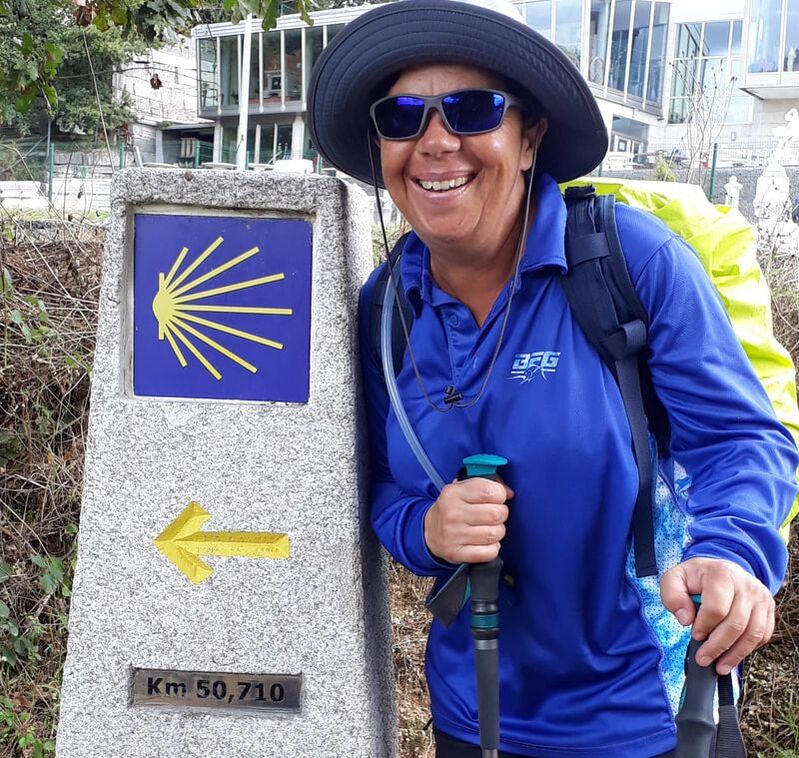 Portuguese Camino 2019 Portuguese Camino 2019
Travel blogs
New Zealand 2008 Tibet 2007 New Zealand 2006 Melbourne 2006 United Kingdom 2004 Athens Olympics 2004 Peru 2003 Beijing to Athens 1994 Nepal 1991 Categories
All
Archives
December 2019
|
|
I acknowledge the traditional Custodians of the land on which I work and live, the Gubbi Gubbi / Kabi Kabi and Joondoburri people, and recognise their continuing connection to land, the waters and sky. I pay my respect to them and their cultures; and to Elders past, present and emerging.
|
© 2024 HARI KOTROTSIOS
|
